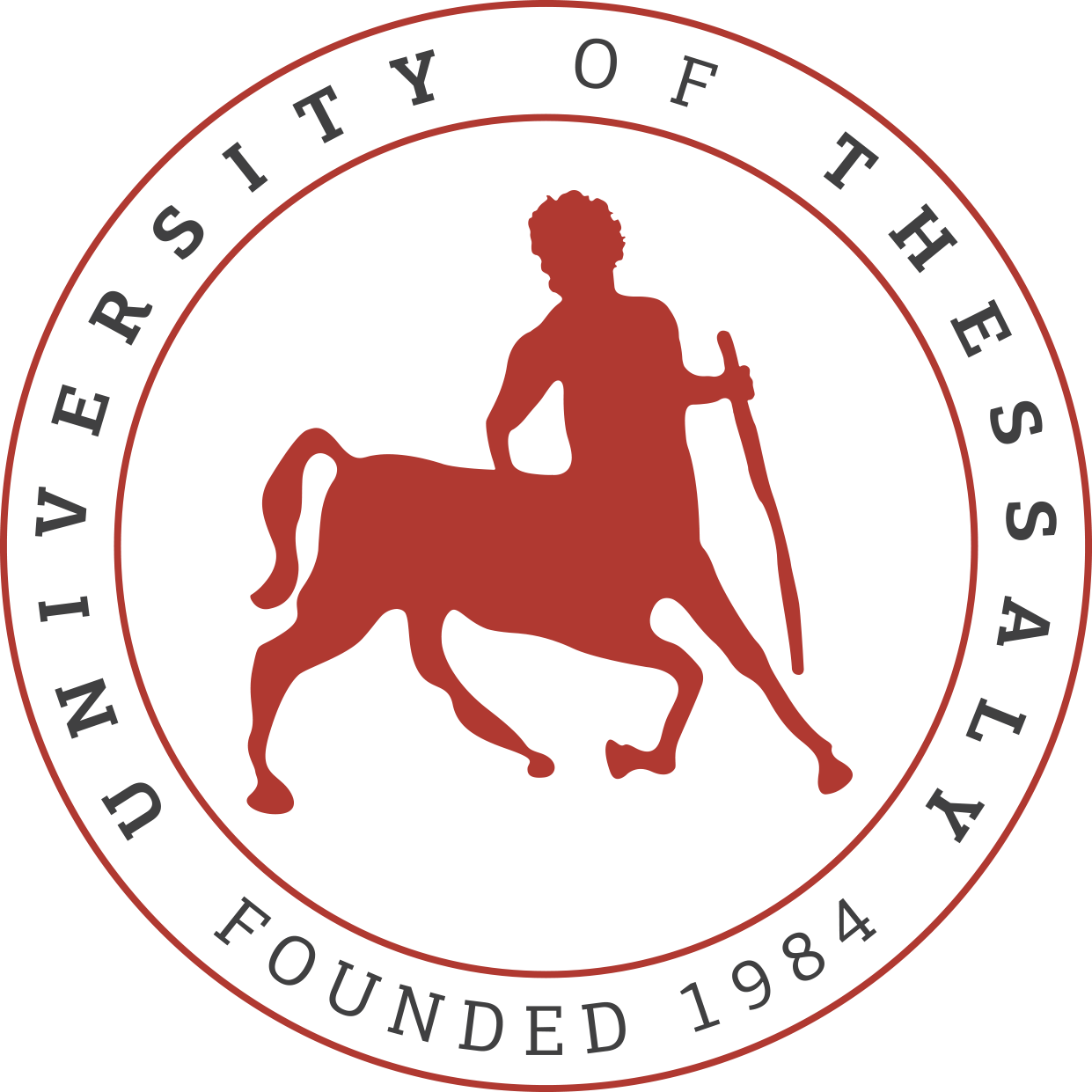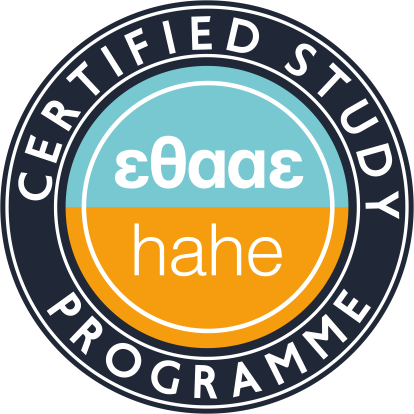2nd Semester – Development and Learning in childhood: Contemporary approaches and applications
ECTS Units: 12
Professor: Sounoglou Marina, Magda Vitsou
COURSE CODE A3-E
SEMESTER OF STUDIES SECOND
SELF-ENDED TEACHING ACTIVITIES
Teaching activities include teaching the unit once a week
TEACHING HOURS 3
CREDIT UNITS 12
COURSE TYPE Compulsory
PREREQUISITE COURSES:-
TEACHING and EXAMINATION LANGUAGE: Greek
THE COURSE IS OFFERED TO ERASMUS STUDENTS –
ELECTRONIC COURSE PAGE
(URL) https://eclass.uth.gr/modules/auth/courses.php
2. LEARNING OUTCOMES
Learning results
Upon successful completion of the course, the student will have acquired:
- Familiarity with the developmental characteristics of the child and with contemporary views on the promotion of learning, creativity and aspects of the child’s development
- Familiarity with theories of creativity and developmental models that promote creativity through play
- Linking theory and practice so that knowledge of the principles of development and learning and their promotion can be applied to research and educational practice.
- Familiarity with research methods used to study development and learning.
- Development of skills in the implementation and writing of a small research study
General Skills
- Search, analysis and synthesis of data and information, using the necessary technologies
- Decision making
- Teamwork
- Work in an interdisciplinary environment
- Generating new research ideas
- Respect for diversity and multiculturalism
- Demonstrating social, professional and ethical responsibility and sensitivity to gender issues
- Exercise criticism and self-criticism
- Promotion of free, creative and inductive thinking
3. COURSE CONTENT
At the center of the course are issues of the child’s development and creative learning based on modern research data and new interpretive approaches. An attempt is made to familiarize the students with the developmental characteristics of the child and with the modern views on the promotion of learning.
The course topics include the importance of cognitive and social-emotional processes during development and learning, creative thinking, children’s design, psycho-educational interventions to prevent and deal with learning and behavioral issues, social-emotional education of students, etc. .a.
Issues such as children’s play and its contribution to the process of development and learning are also examined, but also the possibility of using play as a means of assessing and promoting children’s development and psychosocial adaptation.
Issues of managing learning in classrooms, peer learning, as well as issues related to diversity are analyzed. Assessment for learning and alternative approaches have an important place in the course.
The aim of the course is to connect theory and practice, so that the knowledge of the principles of development and learning and their promotion can be applied in research and educational practice.
Critical reflection on early childhood teaching and learning
Creativity in childhood
Innovative Models of Creativity Development: Study and Comparison of Contemporary Programs
Child and Play: Development, Evaluation
Promoting the creativity and active participation of students by utilizing digital tools in the teaching process
Play with Flexible Materials: Cognitive Developmental Benefits Based on the Reggio Emilia Philosophy in Early Educational Contexts
Games Objects: pedagogical dimensions and applications in educational environments
Children’s Drawing: A form of play
Self-regulation of behavior and learning in children – Promoting learning skills
Peer-to-peer learning
Learning management in classrooms
Diversity issues
Assessment for learning
4. TEACHING AND LEARNING METHODS – ASSESSMENT
DELIVERY METHOD
Face to face, Distance learning etc.
Face to face
USE OF INFORMATION AND COMMUNICATION TECHNOLOGIES
Use of T.P.E. in Teaching, in Laboratory Education, in Communication with students
e-class
TEACHING ORGANIZATION
The way and methods of teaching are described in detail.
Lectures, Seminars, Laboratory Exercise, Field Exercise, Literature Study & Analysis, Tutorial, Internship (Placement), Clinical Exercise, Art Workshop, Interactive Teaching, Educational Visits, Study Preparation (Project), Writing Paper / Assignments, Artistic Creation, etc. etc.
The student’s study hours for each learning activity as well as unguided study hours according to ECTS principles are listed
Semester Workload Activity
Lectures 50
Interactive teaching 50
Preparation of a study 75
Writing assignments 125
STUDENT EVALUATION
Description of the procedure
Description of the evaluation process
Assessment Language, Assessment Methods, Formative or Deductive, Multiple Choice Test, Short Answer Questions, Essay Development Questions, Problem Solving, Written Assignment, Report / Report, Oral Examination, Public Presentation, Laboratory Work, Clinical Patient Examination, Artistic Interpretation, Other / Others
Explicitly defined evaluation criteria are mentioned and if and where they are accessible by students.
2 written assignments
5. RECOMMENDED-BIBLIOGRAPHY
Suggested Bibliography:
– Related scientific journals:
Avgitidou, S., Tzekaki, M., & Tsafos, V. (2016). Preservice teachers observe, intervene, and reflect: Suggestions for supporting their practice. Athens: Gutenberg.
Bottrill, G. (2018) Can I Go and Play Now? Rethinking the Early Years. London and Los Angeles: Sage Publications.
Diane, B. (2018) “Early childhood education for sustainability and the legacies of two pioneering giants”, Early Years, 38 (2), 227-239.
Fleer, M. (2018). The game in preschool age. From personal experiences to modern theories (M. Birbilis, Ed.-Es.). Thessaloniki: Sofia
Gunilla, L. (2003) “Vygotsky’s Theory of Creativity”, Creativity Research Journal, 15 (2-3), 245-251.
Hirst, N. (2019) “Education for sustainability within early childhood studies: collaboration and inquiry through projects with children”, Education 3-13, 47 (2), 233-246.
Johnson, J. & Watts, A. (2018). “Chapter 3: The Forest School background”, in Developing Creativity and Curiosity Outdoors: How to Extend Creative Learning in the Early Years (pp.). London and New York: Routledge.
O’Donnell, A M., Reeve, J., & Smith, J. K. (2021). Educational Psychology: Reflection for action. Gutenberg Publications.
MacNaughton, G. (2020). Shaping preschool: perceptions of learning, curriculum and pedagogical context. Ambartzakis, M. (ed.). Athens: Pedio
McNally, Shelley A. & Ruslan Slutsky (2017) “Key elements of the Reggio Emilia approach and how they are interconnected to create the highly regarded system of early childhood education”, Early Child Development and Care, 187 (12), 1925-1937
Xanthakou, G. (2011). Creativity and Innovation in School and Society. Interaction.
Samuelsson, I.P. & Maj Asplund C. (2008) “The Playing Learning Child: Towards a pedagogy of early childhood”. Scandinavian Journal of Educational Research, 52 (6), 623-641.


